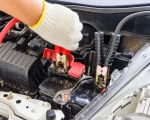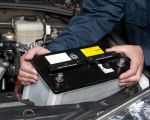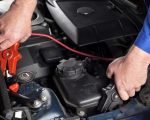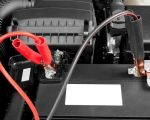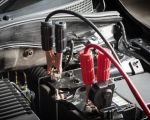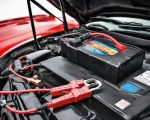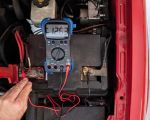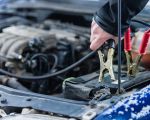How Often Should I Get My Car Battery Checked?
- 1. The Importance of Regular Car Battery Checks
- 2. How Often Should You Get Your Car Battery Checked?
- 3. Signs Your Car Battery Needs Attention
- 4. How to Maintain Your Car Battery for Longevity
- 5. What to Do If Your Car Battery Fails
- 6. Emergency Car Battery Replacement Services
- 7. Real-Life Case Studies of Car Battery Failures
- 8. When to Consult a Professional for Car Battery Issues
Car batteries are crucial for starting your vehicle and powering essential systems like lights, air conditioning, and your radio. A well-maintained battery ensures your car runs smoothly and avoids frustrating breakdowns, especially during unexpected times. Without a properly working battery, even the most modern cars can come to a halt.
That's why regular checks on your car’s battery are essential. Not only does it extend the battery's life, but it also helps you detect potential problems before they leave you stranded. Whether you're driving on the highway or just running errands, knowing how often to check your car battery can save you from being caught off guard by an unexpected failure.
2. How Often Should You Get Your Car Battery Checked?
The general recommendation is to have your car battery checked every 6 months, or at least once a year. This ensures that the battery is functioning optimally and that there are no underlying issues, such as corrosion or a weak charge, that could cause it to fail prematurely.
Many auto repair shops and service centers offer free battery checks as part of their routine maintenance services. These checks typically involve testing the battery’s charge, looking for signs of wear or corrosion, and ensuring that the battery is securely mounted and connected. Regular checks are especially important if you live in an area with extreme weather, as both hot and cold temperatures can take a toll on the battery’s performance.
For older vehicles, or if you frequently use electrical accessories (like a GPS system or heated seats) while the car is off, more frequent checks may be necessary. These conditions can drain the battery faster, increasing the likelihood of sudden failures.
3. Signs Your Car Battery Needs Attention
While regular maintenance can prevent many issues, it's also important to be aware of warning signs that your battery might need attention. Here are a few symptoms that indicate your car battery could be failing:
- Difficulty starting the car: If your engine turns over slowly or struggles to start, this is one of the clearest signs of a weakening battery.
- Dim headlights: If your car’s headlights appear dimmer than usual, it could mean that the battery is not providing enough power.
- Electrical issues: Malfunctions in electrical systems, like the radio or dashboard lights flickering, often point to a battery that's not providing consistent power.
- Corrosion or leakage: Corrosion around the battery terminals, or a visible leak, can indicate that the battery is damaged and needs to be replaced.
- Bad smell: A rotten egg smell coming from the car, which may indicate a leaking battery, can be a health hazard and should be checked immediately.
If you notice any of these signs, it’s essential to get your car battery checked by a professional as soon as possible to avoid being stranded.
4. How to Maintain Your Car Battery for Longevity
Proper maintenance can significantly extend the life of your car battery. Here are some tips for ensuring your battery stays in top shape:
- Keep the battery clean: Periodically check for any corrosion around the battery terminals. If you notice any buildup, clean it off with a mixture of baking soda and water, but be sure to wear gloves and safety glasses.
- Check the battery’s charge: Keep track of your battery’s charge, especially in cold weather. Some vehicles come with a battery indicator, but you can also use a multimeter to check the voltage.
- Avoid short trips: Frequent short trips prevent the battery from fully charging. If possible, take longer drives to allow the alternator to recharge the battery fully.
- Ensure the battery is properly secured: A loose battery can vibrate, potentially causing damage. Check the battery’s mount and ensure it's secure.
- Turn off electrical accessories: Before turning off your car, ensure that electrical accessories like lights, GPS, and radios are switched off to prevent unnecessary drain on the battery.
5. What to Do If Your Car Battery Fails
If you’re already dealing with a dead car battery, the first thing you should do is stay calm. Here are some steps to follow if you find yourself in this situation:
- Check for warning lights: Ensure that there are no warning lights on your dashboard indicating a more serious issue with the battery or charging system.
- Jump-start the battery: If you’re stranded and need to get your car started quickly, a jump-start from another car can provide enough power to get you to a mechanic or service center.
- Call for a tow or roadside assistance: If a jump-start doesn’t work, or if you're unable to safely access another vehicle, calling a roadside assistance service or towing company is the best option.
It’s always a good idea to keep jumper cables in your car, just in case you need them, and know how to properly use them. For more complex issues, don't hesitate to contact a professional mechanic or a towing service to help you with your car’s battery failure.
6. Emergency Car Battery Replacement Services
If your battery dies unexpectedly, you may need emergency battery replacement services. Many towing companies and auto repair shops now offer on-site battery replacement, so you don’t have to tow your car to a garage. These services are especially convenient if you’re in a hurry or stuck in a remote location.
With emergency battery replacement, a trained technician will come to your location, assess the issue, and replace your battery if necessary, so you can get back on the road quickly. Look for a towing service or roadside assistance company that offers 24/7 emergency services, including battery replacements.
7. Real-Life Case Studies of Car Battery Failures
Take the case of Sarah, who was on her way to an important meeting when her car suddenly wouldn't start. After several failed attempts, she called a local roadside assistance service, who promptly sent out a mobile technician. The technician diagnosed a dead battery and replaced it on-site, allowing Sarah to get back to her meeting without any further delays.
In another case, Mike was stranded on the highway with a dead battery in the middle of the night. He called a towing service, who not only jump-started his car but also provided a new battery when the jump didn’t work. Mike was able to continue his journey without worrying about his car's reliability for the rest of the trip.
These real-life stories show how professional towing and roadside assistance services can provide immediate solutions to unexpected car battery issues, saving you time and frustration.
8. When to Consult a Professional for Car Battery Issues
If you suspect that your car’s battery is no longer functioning properly, it's always best to consult a professional. A professional mechanic or roadside assistance technician can help you diagnose the issue accurately and offer solutions, whether that’s a simple recharge or a complete battery replacement.
For reliable battery checks, maintenance, and emergency services, consider contacting a professional team like Rescue & Towing. Their team of experts is available 24/7 to assist with car battery failures and provide high-quality service when you need it most.
OLD Keywords: how often should I get my car battery checked, car battery maintenance, car battery check, car battery replacement, how to maintain a car battery, car battery life, emergency car battery check
SEO Title: How Often Should I Get My Car Battery Checked?
SEO Keywords: how often should I get my car battery checked, car battery maintenance, car battery check, battery replacement for car, how to maintain a car battery
SEO Description: Learn how often you should get your car battery checked and the importance of regular car battery maintenance to avoid unexpected failures. Protect your car and ensure its longevity.













